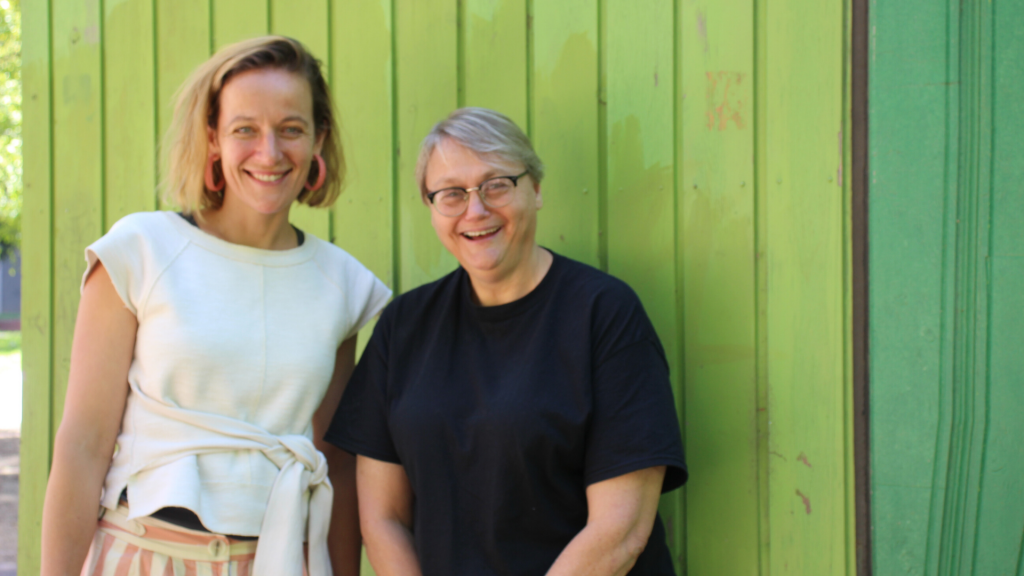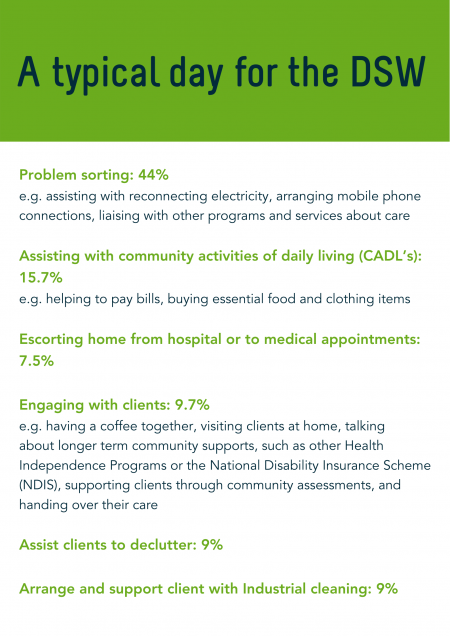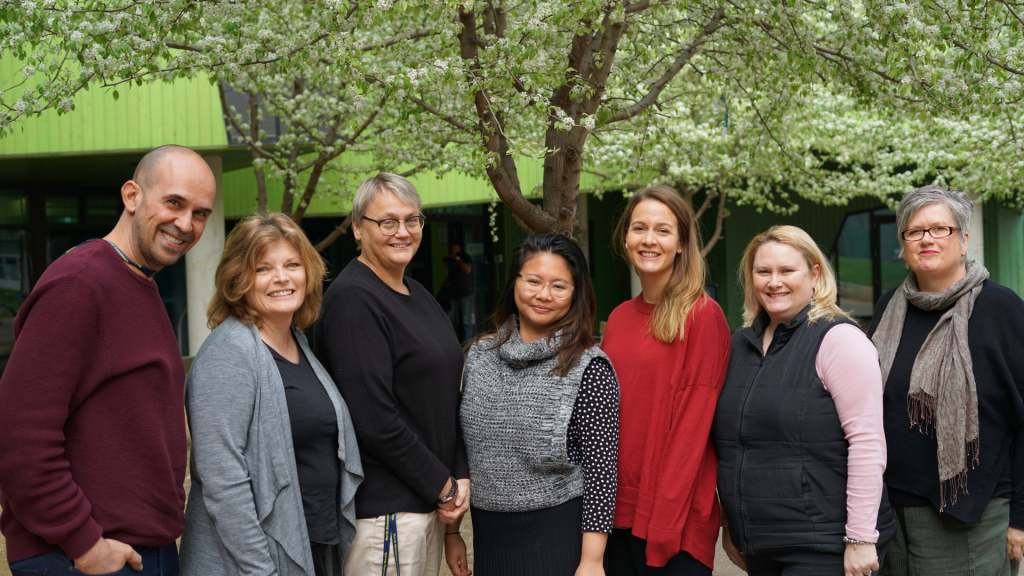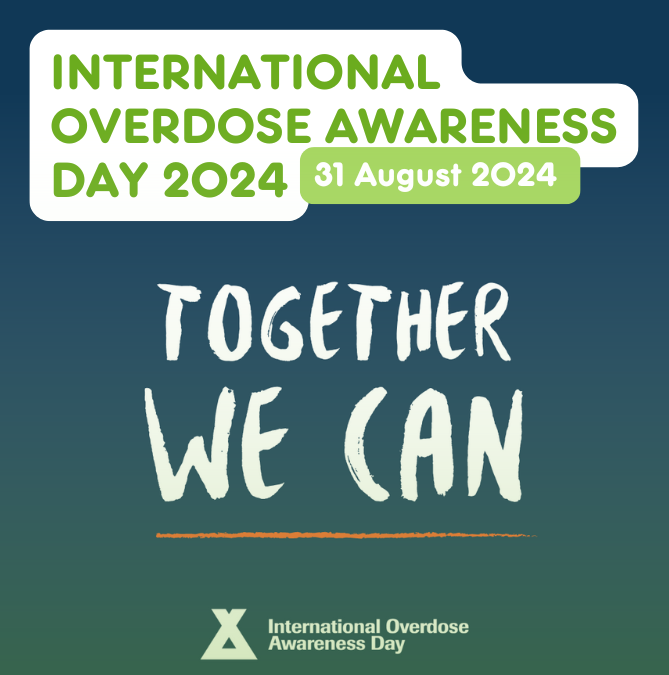
(Pictured from left to right: IMPAC Care Coordinator Laura O’Shea and IMPAC Disability Support Worker Gaylene Ford)
Filling a gap in the Victorian healthcare system
Many vulnerable Victorians need support immediately after they are discharged from the hospital, but do not receive it due to gaps in the service system.
It is common for patients to leave the doors of a hospital with no mode of transport home and no family or friends to help them when they get home. Our socially isolated neighbours can struggle with day to day tasks due to physical and mental health issues.
In 2014, the Inner Melbourne Post Acute Care (IMPAC) program created the new role of Discharge Support Worker (DSW) to support vulnerable patients leaving hospital. The IMPAC catchment encompasses all of City of Yarra, City of Melbourne, City of Boroondara and southern Darebin. Gaylene Ford has performed this role since its inception, and within the first six months, the part-time role became full-time due to uptake and demand.
What does a Discharge Support Worker do?
Gaylene works with many vulnerable clients who are often guarded or wary of services, which can be a barrier to accessing the care they need.
“I can honestly say she has been a lifesaver on many occasions when there have been no other options to assist our patients”, said one hospital worker.
Gaylene has a special skill set and exceptional way of engaging with people that allows her to uncover the root of the problem. Often these patients will hide their struggles from their doctor and other health services due to embarrassment. However, Gaylene’s empathetic and non-judgemental nature can break down walls.
She explains, “Everyone wants to be understood. I want to understand each person’s journey. I can often sense someone’s trauma when I meet them, but I’ll have no idea what they’ve been through. I hope to make someone’s journey through the health system easier and less overwhelming”.
It is distressing to hear the housing conditions Gaylene comes across in a typical day’s work. She says, “I help many hoarders improve their home situation. The smell can be indescribable when you walk through the front door – I have found the skeletons of missing pets under mounds of belongings. But I’m used to horrible smells now – I’m often sitting on dirty chairs having a lovely chat with my clients whilst I pretend my shoes aren’t sticking to the carpet.”
Gaylene comes across many unsafe homes when helping people return home from the hospital. She will spend anywhere from four to 12 hours preparing for and arranging an industrial clean of the home, which includes supporting the client before and after the clean. Hoarding is a sign of underlying complex issues, such as physical health problems, mental health problems and trauma. “We approach the cleaning process gradually and sensitively with our clients – it is traumatising when industrial cleaners just turn up and throw everything away”, says Gaylene. IMPAC works with a wonderful group of cleaning professionals who are acutely aware of the complex needs of this cohort.
The big job of industrial cleaning is only one life-changing task Gaylene performs. Each week Gaylene helps her clients with day-to-day problems, community activities of daily living, transport to and from medical appointments, linking them into long-term supports and providing some social interactions.

(Snapshot of a typical day for the Disability Support Worker)
Moving forward
In 2019, the IMPAC team presented the model of care at the Asia Pacific Integrated Care (APIC) Conference in Melbourne and received significant interest and positive feedback from attending health professionals. The presentation demonstrated how accessible and transferable the model of care is to other hospital and community based health services. The role has addressed a need in our area and IMPAC expects continued growth in demand.
If you are interested in partnering with the IMPAC team at North Richmond Community Health or would like more information on the model, please email Sue Senewiratne at sues@nrch.com.au.

(The IMPAC team at North Richmond Community Health)



